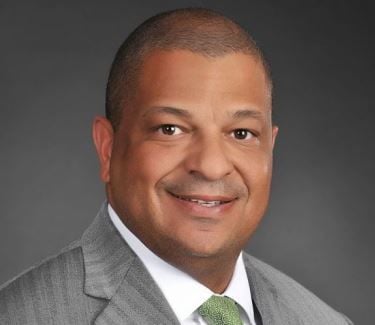Urban One’s Casino Efforts Came Up Short. But It’s Not Done Looking For New Investments

After twice coming up short with voters on a casino project proposal in Richmond, VA in November, Urban One CEO Alfred Liggins is not ruling out making another gaming-related bid somewhere in the state. But with $136.8 million in hand from the sale of its investment in the suburban Washington MGM National Harbor casino complex, the company is also considering several other potential moves.
“It's a great business. We made a lot of money on our MGM investment,” Liggins said Thursday. He told analysts during a conference call that Urban One made four and a half times its initial investment in National Harbor. “We would absolutely look at other stuff,” he said, pointing out that efforts to locate a casino in Virginia remain alive. There is also a gaming push across the border in Maryland, where Urban One also owns radio stations. “We're not a venture capital fund – we're not making a bunch of investments in startup companies,” Liggins added.
As other companies have focused on snatching up digital assets, Liggins says they have been more cautious given the “tricky” nature of the business. Because few digital platforms have their own traffic, he said audience size can quickly change depending on the algorithm changes made by the big platforms like Google or Meta.
“We look at digital acquisitions,” Liggins said. “We were nosing around a public company this year, and ended up doing a deal somewhere else.”
As Urban One looks for its next move, Liggins said the media business will remain core to what it does, with whatever new venture it approaches benefiting from an association with radio and television.
“We like to look for businesses that are tangential to the assets that we have,” Liggins explained. “I wouldn't want to do anything where we're just out of our depth and knowledge.” He did not rule out investing in a consumer-based business, however, such as an urban apparel retailer that would profit from exposure on Urban One media properties. “Our number one priority is to be in a defensive posture,” he said.
Next month will mark two decades since Urban One debuted its TV One business, and Liggins told analysts that it is an area they have worked to grow. He said they made an offer for BET when Paramount was shopping the Black-targeted media unit before scrapping plans to sell. “There would have been a great deal of synergy there, from a programming cost and advertising sales standpoint,” Liggins explained. He said that as the BET sale possibility evaporated, Urban One put more of its energy behind the Richmond casino project.
Not Selling Towers
While Urban One looks toward making investments, it is not interested in selling its towers, which is a move many other radio groups have taken to raise capital. Liggins told analysts he was recently approached about selling towers in a couple markets for $7-$8 million but said no.
“One of our problems is it weakens our position in the market versus something that we might want to do,” he said. “It would make us weaker against a competitor there. And ultimately, we think there's an opportunity to buy the competitor and do really well. So I don't want to take the pressure off of that competitor.”
Fourth Quarter Revenue Pacing Down
Urban One released delayed results for the first half of the year Thursday, reporting revenue increased 3.8% compared to a year earlier. Radio revenues grew 8.3%, with the bulk of the increase coming from the acquisition of three radio stations in Indianapolis.
Liggins said business “struggled” during the first half, but has “stabilized” in the second half even as Urban One revenue is currently pacing down 11.6% during the fourth quarter – or down 21.2% on a same-station basis with local off 2% and national down 26%.
“We've definitely experienced some soft market revenues for the second half of the year, although Q4 local has improved sequentially over Q3,” CFO Peter Thompson said.
Digital has also been a bright spot, with revenue up 1.8% during the first half as streaming revenue from radio station inventory was up. But Thompson said online sales were not immune to what’s happening in the ad market. “Advertisers pulled back somewhat on marketing budgets due to recession concerns, and fewer advertisers committed to Black History Month and the Juneteenth efforts compared to a year ago,” he said.
Political advertising will help fill the gaps next year, but Liggins does not expect Urban One to receive as much as in 2022 when the Senate runoff election in Georgia poured about $6 million into its Atlanta cluster. For now, Liggins thinks they will get about $10 million in political ad dollars in the current cycle.
